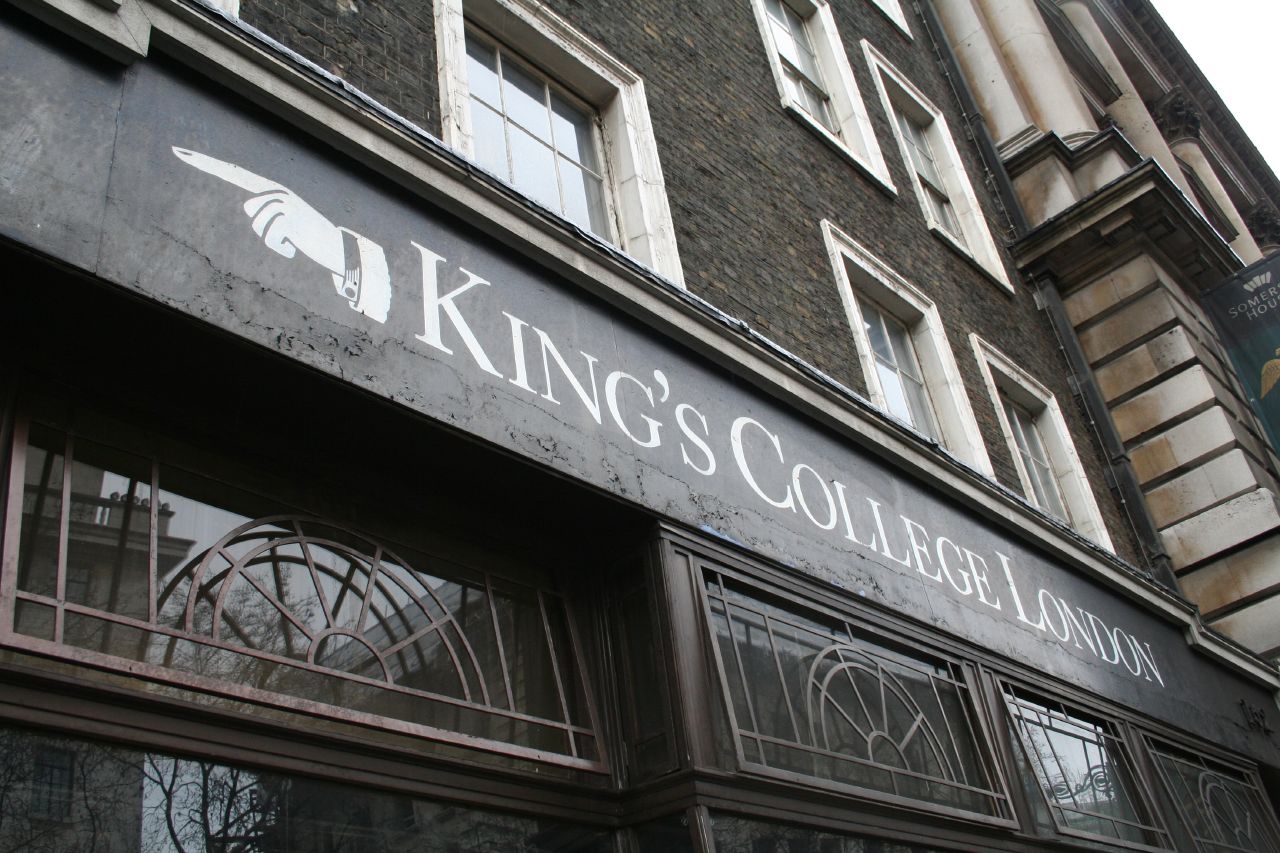The UK entered its second lockdown on November 5. Roar spoke to King’s students about the support they received from their departments.
Lockdowns impact students in different ways. There’s the all too familiar restlessness from staying cooped up indoors for so long, the lack of social interaction and sunshine – the pressure of turning on your camera in a Microsoft Teams seminar, as well as the panic of making it to class when you’ve lost sense of time. On top of that, students are expected to keep themselves updated on any new changes in or out of King’s. Roar asked King’s students how their departments have been supporting them during this time:
“The reach and care has definitely improved since [the] first lockdown.†Sports editor Alfie Wilson, who studies History and IR, comments. “I’m unaware of any specific schemes from either side of the course, but seminar leaders regularly check in with everyone, much more so than last year, and always offer their support if needed. It’s easy to get in contact with them as well. I feel adequately informed.â€
“Personal tutors reach out,” explains Comment editor and Liberal Arts student Asher Gibson. “We have community seminars orientated around academic and personal support on a weekly basis…It is easy to get in contact and I know I can get a hold of support when needed.” Victoria Poole from Theology and Religious Studies is similarly “pleased with how the theology department has been regularly emailing [us] with updates where appropriate, informing us of any news but not in a way that I have felt overwhelmed with information.”
Music student Phoebus Kyriakoudis describes the way his department has “[kept] practice rooms open during the lockdown, which has been incredibly helpful especially for us international students who don’t have regular access to a piano or a practice space at home. The practice rooms have also been very useful for society activities – which had to be approved and risk assessed by the department of course – as they have proven to be invaluable rehearsal spaces…We didn’t have any department support sessions or anything like that, the only things being some sessions to inform us on the main points of how they’re gonna run things this time round – although those always [came] late to be honest.”
“I think the bigger issue was that the department, student union and general administration weren’t on the same page as regards [to] Covid-19 policies,” he continues. “We would learn something new…from the SU, which we wouldn’t previously have been told by the department, and vice versa. There was a lot of misunderstanding especially with society activities…while it is fairly easy to get into contact with the head of our department…we would regularly hear from him things like ‘that’s all I know for now’ or ‘you know more about this than I do’, which never really helped to reassure us.”
Ishaan Rahman, who studies Medicine, shares that his department also provided “guidelines if we wanted to use facilities on campus, such as the libraries or study spaces, so that was helpful.” He muses that some in-person events scheduled prior to the lockdown would have been beneficial. “When the lockdown came into effect earlier this month, it would have been nice to have other students that we could communicate with virtually. I’ve managed to find a good group of people by myself but it would have been easier if the department had facilitated that.”
Comment Editor Marino Unger-Verna from the Classics department agrees with this sentiment. “After several discussions at [the Staff-Student Liaison Committee] and departmental meetings, we’ve been able to signpost students to relevant resources and ensure they feel supported.†He discusses “virtual movie nights on Teams with students and professors†that have been organised during this lockdown. “It allow[s] first years especially to meet and mingle with staff – something which hasn’t been easy with the majority of activities online since September.”
A Law student – who asked to remain anonymous – notes “teachers have generally been really helpful since the start of semester in providing us with opportunities to socialise. I had a professor who took the initiative to put us in stud[y] groups. He would leave the Teams meeting running even after tutorials so we could talk.†They mention a new departmental activity that began during this lockdown, “a ‘Shut up and Write’ virtual session whereby the department tries to replicate the study environment with friends in the library, but all virtual.â€
“I mean I think it’s a great idea considering assignments are due soon,†they add. “But at the same time I personally wouldn’t go. Like if it were with friends, I’d be okay, but when it’s all online and you’re with strangers and can’t really talk it’s kind of weird [in my opinion].†They point out the different situation remote learners are in. “I’m currently in Singapore and we can go out to study in cafes [and] libraries…It just doesn’t really make sense for me to participate.â€
Whereas some students are satisfied, other students do not feel adequately supported by their departments. “In terms of support, there’s been very little. I haven’t heard from [my personal tutor] in a while. I don’t feel sufficiently supported by the faculty at all.†Adult Nursing student Dani Jones shares. “Our most recent placement was announced very late and there was very little support during it. The university is also considering stopping our very infrequent practical sessions, and they haven’t announced a solution…I worry that when we qualify and are interviewed for jobs, our inexperience in so many areas will put us at a disadvantage.â€
She continues, “I feel communication is really lacking with the faculty. It’s incredibly hard to keep up with our timetable as we have to trawl through dozens of emails a week just to find the right link for our class.†Drawing attention to online learning’s tendency towards disorganisation, she comments: “There’s been lots of changes, including the cancellation of many choices of elective placements, with very little information about what that will mean for us when we qualify. I feel that as a cohort, we’re missing so many important learning opportunities that previous cohorts have had.”
Adrija Mahapatra, who studies Neuroscience, elaborates on this. “I have felt very unsupported throughout my transition to second year…” She expresses her frustration with online learning during the lockdown: “My course’s integral component, i.e. lab work is significantly missing, and has been completely replaced with online sessions which are frustrating, long, and instead of consolidating learning, it actually loads us with more information…the interactions are more passive and not that different from online lectures.”
“As an international student, I pay thrice the tuition fee, and it’s not just an education I’m paying for, on top of all this I’m missing out on [the] university experience…lecturers themselves do not have any communication with the module organisers…We have multiple student-led positions in our [department]…we have absolutely no clue as to what they’ve been doing.” Adrija further expresses her dissatisfaction at “how randomly everything is arranged.”
It appears that support for students during this lockdown is available across the represented departments, but some students feel it can be amplified. Roar hopes this article offers insight and solutions for future departmental support initiatives at King’s.
Karen is a journalist based in Hong Kong, London and New York City. She is a third year Liberal Arts student at King's College London, majoring in English and also studying Politics, Philosophy, Classics, Digital Culture, French, History and creative writing. She is a poet, photographer and musician, and is passionate about reporting on and discussing local issues and culture. Karen will begin her Master's degree in journalism at Columbia University this year.

















